- Home
- P. T. Deutermann
The Last Man Page 35
The Last Man Read online
Page 35
Colonel Shapiro walked out onto the terrace, followed by Judith, David, and Professor Ellerstein. Above them, Shapiro’s team waited, bored now, their submachine guns draped casually as they lit up cigarettes. In the distance, David saw lights down on the coast road, approaching the mountain, coming fast. Too fast, he thought; that has to be a helicopter. Then he heard the whining engine noise. Skuratov glared first at David, then Ellerstein. The helicopter came whopping by, actually below them, the rotor disk silvery in the morning light, and then it hooked a lazy right turn, climbing up the south side of the mountain, turning again to line up on the top of the fortress and then landing in a cloud of dust and noise in front of the storeroom ruins.
32
Ellerstein waited for all the noise up top to subside before approaching Skuratov. He was pretty sure he knew who was in the helicopter.
Skuratov just glared at him. “So, Ellerstein,” he said in Hebrew. “What have you done here?”
“The question is, Colonel, what have you done here,” Ellerstein replied. “These people tell me that Judith’s husband, Dov Ressner, lies at the bottom of that cistern.”
“Where you should have left him,” Skuratov spat, “and them.”
Ellerstein was taken aback. He asked Colonel Shapiro to move his men back from the terrace above; ordinary conscripts should not hear this. He also asked the colonel to keep an eye out for any more of Skuratov’s people. Just then Gulder and two of the prime minister’s bodyguards appeared, coming down the terrace steps. Shapiro made a gesture, and the soldiers backed out of sight. The bodyguards started down, but Gulder waved them back up the steps.
Ellerstein pulled his glasses down to look directly at Skuratov. “So this information is not news? You did this thing?”
“I did not put him there,” Skuratov said. “He put himself there. I just made sure he stayed there.”
“All right, Yossi, I’ll take it from here,” Gulder said as he walked up. Ellerstein was surprised at the aide’s tone of voice. This was a different Israel Gulder. He could see that the American, unable to understand Hebrew, was totally baffled. Judith, on the other hand, looked as if she were going to explode.
“It was you?” she hissed. “You who closed the slab on my husband? It was you who closed it on us, too, wasn’t it?”
“What are they saying?” David asked Ellerstein in English. The professor just shook his head. “That’s Colonel Malyuta Lukyanovitch Skuratov, of the Israeli security service known as Shin Bet,” he said softly to David in English. “Very important at Dimona. I believe he murdered Yehudit’s husband.”
Judith advanced on Skuratov, pushing past Colonel Shapiro to get right in the old man’s face. “I know he murdered my husband,” she said, in English now. “Just like he tried to murder us. Why? Evil bastard, look at me! Why?”
“Because you had no business being down there, in that cistern,” Skuratov thundered in heavily accented English. “Neither of you: It is forbidden! Do you understand me? Forbidden!” He glared at David. “You goddamned Americans think you can go anywhere, all over the world, and do anything you please? Well, not here, you can’t. Absolutely not. It is forbidden!”
“Did you know about the cave?” David asked him. “With the Temple relics?”
Skuratov hesitated but then waved his hand dismissively. “What cave? What relics? Is this some more of your emotional dreams about Metsadá, American fool? There is no cave.”
“Yes there is, you bastard,” Judith yelled. “Now explain yourself: Why have you done these terrible things? What are you hiding down there?”
“Your security, and Israel’s. Your husband took an oath, and then he broke that oath when he consorted with antinuclear traitors. We knew what he was up to, of course. When he came here, to find the D2O, he went too far. We took the appropriate measures. That is all.”
“D2O?” David asked softly. “Did you say D2O?”
Skuratov squinted his eyes for an instant and then sighed. “Ah. I forgot. Our American here is an engineer.” He rubbed the sides of his face. “Yes, I said D2O. So now you know.”
“Know what?” Gulder said. Ellerstein said something to him in Hebrew. Gulder’s face tightened, and then he looked at David.
Judith wasn’t interested in D2O. “I don’t care!” she shouted, clearly on the verge of hysteria. “You murdered my husband!”
Skuratov snorted his contempt, but Colonel Shapiro moved closer to Judith.
“In Hebrew, please,” Gulder said, glancing again at David. “Yossi, what is this D2O business?”
“Deuterium oxide, Mr. Gulder,” Ellerstein said. “Also known as heavy water. The American mentioned pipes. I’m going to guess that the cistern is part of a heavy water distiller, supplied from an evaporation plant nearby. Right, Colonel?”
Skuratov nodded once but then stared away into space. The breeze wafting up from the cliffs below carried a faint whiff of warm brine.
“They were making heavy water?” Gulder asked. “Here, in this place? In this desert?”
Ellerstein told Gulder about the cylinders. “That is why you killed Dov Ressner, isn’t it? There was no radiation accident, and it wasn’t because he was talking to antinuclear dissidents. He’d figured this place out, hadn’t he? He saw the geothermal plant down there and realized there had to be a storage point, a very big storage point.”
“What is this heavy water?” Judith asked, looking first to Gulder and then to Ellerstein. Then she looked to David and asked it again, in English.
“It’s the key to making really big nuclear weapons,” David said. “Or making smaller ones much more powerful. You can derive tritium from heavy water, and you can make plutonium in a heavy water reactor. That’s why nonproliferation agencies track it—it’s a marker. Large quantities of heavy water usually indicate a nuclear weapons program.”
“But make deuterium oxide?” Ellerstein asked again. “How? The expense—it would be astronomical. There is no way—”
“Yes, there is,” David interrupted. “Deuterium oxide occurs in nature, but in very dilute form, as little as one molecule in ten million in seawater, for instance.” He pointed with his chin to the Dead Sea below them. “Like that seawater.”
Ellerstein lifted his hands in a gesture of consternation.
“The key was that geothermal plume down there,” David said. “If you had to pay for the energy to boil down millions of gallons of saltwater to get heavy water, you’d never do it—but this energy was free, wasn’t it, Colonel Skuratov? All you had to do was fill the cistern with freshwater, distilled from the Dead Sea, then recycle all that water through a second distiller down in that plant, concentrating the deuterium oxide on each pass. Over and over again, for months on end, until the millions of gallons became, what, twenty gallons? At a ten percent concentration?”
“Thirty,” Skuratov whispered proudly. “Thirty percent concentration.”
David straightened up. “So you guys never did buy heavy water from Norway way back then, did you? That was all cover and deception. You were already making it right here in Israel.”
Skuratov gave him a wintry smile. “The Norway diversion—something for all you sanctimonious nonproliferators to chase after.”
“Then you’d concentrate it at Dimona?”
Skuratov sniffed and looked away without answering.
There was a moment of silence. Gulder broke it, switching back to Hebrew. “There is something missing here,” he said. “Our nuclear program is an open secret. What required extreme measures?”
“Because that is not what you wanted heavy water for, was it, Colonel Zealot?” asked Ellerstein, remembering from his days at Dimona the other use of heavy water.
Skuratov frowned at the use of the word “Zealot” but then seemed to relax, as if there were no longer any reason to pretend. “No, it was not,” he agreed quietly.
“What other use?” Gulder asked. Ellerstein told him.
Gulder, obviously excited now, moved close
r to the colonel, forcing him to crane his neck up at him. “We’ve searched this area, everywhere around Dimona, ever since you stuck your nose in when the American came. We’ve even overflown the fortress with radiation monitors. Monitoring trucks up and down the roads at night. There was nothing.”
“First of all, heavy water is not radioactive,” Skuratov said. “Second, you were looking for weapons or weapons materials. There weren’t any.”
“So what are those cylinders for?”
“When the water level in the cistern is reduced to a few feet and the maximum concentration has been achieved, we command the cylinders to open and fill with the product.”
“The product.”
“Yes, the product.”
Gulder bent down to get in Skuratov’s face. “A product is something you sell, Colonel.”
“Just so, Mr. Gulder.”
“To whom?”
“To whom do you think, Mr. Very Important Assistant? Who in this region desperately needs heavy water?”
Gulder straightened up, his face frozen in shock. “You sold heavy water to the Persians?”
“Yes, we did.”
“Are you insane?”
“We are angry, not mad. Nor crazy, you stupid bureaucrat. The quicker the Persians get the bomb, the sooner Israel will have to strike them first. A preemptive strike, it is called. We are more like the Kanna’im than you people ever imagined, Mr. Gulder. They were the ones who started the rebellion in A.D. 67, remember?”
“And brought the destruction of Israel down on their heads when they did,” Ellerstein pointed out.
“If that’s what it takes, that’s what it takes,” Skuratov said. “If you strike Iran, you will have to strike all the Arabs. Then and only then will we have a final solution.”
Ellerstein shook his head in wonder. “He is mad, Gulder. Stark, raving mad. No word of this calamity can leave this mountain.”
“Oh, yes, that is absolutely correct, Yossi,” Gulder said softly. He looked over at Judith Ressner and the American. Ellerstein suddenly knew what that look might mean. Then Judith stepped in and slapped Skuratov in the face.
“What about Dov?” she asked in a cold voice. In his excitement over discovering what had been going on here, Ellerstein had forgotten all about Dov Ressner. Judith had not.
“Your husband was a traitor,” Skuratov said, rubbing his face where she’d slapped him. “He found out about the plant. We don’t know how. We assumed he’d come here to expose the heavy water process. My people caught him in the big cistern. I gave the order to seal him in it, and I’m glad I did.”
“You absolute swine,” Judith said. “Then you came to my house, you, with your crocodile tears.”
“Swine, is it?” Skuratov growled, finally standing up. “These were vital secrets. Vital to the survival of all Israel. Your peacenik husband, madam, who promised to safeguard these vital secrets, was ready to sell it out for his precious ideals. Well, let me remind you of something, Dr. Yehudit Ressner. You are standing on the fortress of Metsadá. Those Jews, two thousand years ago? They also had ideals, but they chose death to protect their ideals, didn’t they? Your weakling husband ended up in good company here, yes?”
“You trapped him like an animal, and then you drowned him in your precious heavy water,” she said. Shapiro saw that her fingers were opening and closing and that she appeared to be ready to physically attack Skuratov. He moved even closer to her, ready to restrain her.
“Yes, I did those things,” Skuratov announced, pointing a finger at his own chest, “and I would do them again. Someone must, because there are very few patriots anymore in this country.” He shot a defiant look at Gulder, which was when Judith made her move. First she screamed, a long ear-piercing shriek that froze everyone. Colonel Shapiro moved to grab her, but she was way ahead of him. As he raised his arms, she snatched his pistol out of his hip holster and then pushed him away so suddenly that he tripped backward and sat down abruptly. Judith swept the gun in Gulder’s direction, then in Ellerstein’s, motioning them to get back.
“Jesus, Judith, what are you doing?” David asked, reaching out a hand.
“This bastard killed my husband,” she said in English. “He’s been making this heavy water business down here for a long time and now admits to selling some. To the goddamned Iranians.”
“What?”
“Don’t involve yourself in this, David,” Judith said. She turned to Skuratov and put the gun right in his face.
“All right, then, Zealot,” she said, mimicking Ellerstein. “You have committed at least one murder to protect your insane scheme, not including what you did to us. We were looking for the Zealots’ secret, the real Zealots’, not yours. Now I’ll give you a choice: You admire the Kanna’im? Here’s your chance. Do what they did, or I’ll do it for you.”
Skuratov just stared at her. David didn’t know what to do. He looked up to the terrace above them, but the men were not there. Shapiro, back on his feet, was also looking but remained in place. He’d told his troops to back out.
“You know exactly what I’m talking about,” Judith said, putting the gun barrel up to Skuratov’s right eye. He blinked and took an involuntary step backward.
“Yehudit,” Ellerstein began softly, but she waved him silent. Gulder just watched with his arms folded.
“No, Yossi. This is justice here. He drowned my husband like a rat, all for the sake of his heavy water. Well, here we are, Zealot. In Herod’s palace on the mountain of Metsadá. You wish to protect the secret of your own treason and murder? Do what the Kanna’im did, and your secret is safe.”
She jabbed Skuratov in the eye with the gun. He yelped and took another step backward, toward the wall. His right eye puffed close.
“Come on, Colonel Murderer. Whatever you were doing here, it is finished. You think Dov was in good company? Time to find out. Your life for Dov’s. Hammurabi rules now, yes? Eye for an eye?”
Skuratov, never taking his one good eye off hers, slowly raised his right hand. He pushed the gun barrel out of his face with the back of his hand. Then, without another word, he turned and stepped up onto the parapet. Ellerstein yelled something in Hebrew, but in the same instant, Skuratov was gone. Judith lowered the gun and then tossed it back to Colonel Shapiro, who fumbled it and then dropped it. He bent to retrieve it, got up, and went to look over the parapet as Judith turned away.
Judith did not see Israel Gulder boot the colonel over the parapet, but they all heard him scream.
* * *
David resisted an urge to go to the edge and look over. He went instead to Judith and put his hands on her shoulders. She was trembling, but her face was set in a rigid mask as she willed back tears. The sun burst over the Jordanian hills across the Dead Sea, projecting bands of bright yellow light onto the ancient stones of the fortress. Up above, on the top terrace, the sergeant and Gulder’s two bodyguards reappeared. Gulder noticed them and went up the steps. He said something to Ellerstein in Hebrew. They both looked at David. Ellerstein came over to him while Judith sat down with her arms wrapped around her chest.
“You have heard some sensitive things here this morning, Mr. Hall,” he said. “How good is your memory?”
“Not worth a damn, Professor,” David said, not missing a beat.
“Is that a promise, Mr. Hall?”
“Absolutely. My main concern is for what’s in that cave—and for her.”
Ellerstein glanced down at Judith. “Do you truly understand, Mr. Hall?” he asked. “Promises made in this place are binding, yes?”
“I understand,” David said.
Ellerstein nodded slowly. “I will try my best for you, then,” he said.
Gulder was coming back down the steps with his bodyguards. Ellerstein intercepted him, and they stepped aside to talk in Hebrew. David sat down beside Judith and put his arm around her shoulder. She sagged into him.
“What is it about this place?” he asked quietly. “Everything is about blood and d
ying.”
“Not the wine bowl,” she said.
Yes it was, David thought to himself, especially if it’s what I think it is. What had Ellerstein meant by trying his best?
Then there were soldiers standing around them. Israel Gulder came over, closely escorted by his bodyguards.
“Mr. Hall,” he said in English, “will you kindly go with these people?”
“Where?” David asked.
Gulder did not reply but only signaled with his chin that David should get up and go with them. Judith didn’t appear to understand what was happening.
“Now, Mr. Hall,” Gulder said. He gestured again with his chin.
* * *
When they got up to the top, there were many more soldiers standing along the eastern parapet walls, looking down. The sergeant was busy shouting orders, and there appeared to be a recovery detail shaping up by the eastern gate. David had little time to watch; the bodyguards escorted him directly to the helicopter, whose turbines were already spooling up. They sat him in the left rear seat, helped him strap in, and put a headset on his head. Then one of them strapped in next to him while the other got in the right front seat, next to the pilot. A soldier outside closed the door and stood ready with a fire extinguisher until the engines came up to power. Then they lifted off.
As soon as they were safely airborne, the bodyguard next to him produced a set of plastic handcuffs and snapped them onto David’s wrists. He did not resist: What would have been the point, at two thousand feet over the Dead Sea? Then the guard produced a black sleep mask, which he gently fit over David’s eyes. David felt a hand on his chest, pushing him back into the seat. The gesture said it all: Relax. He slumped in his seat. After watching Gulder calmly send the colonel to his death, he wondered now if the ministerial aide had told them to throw him out of the helicopter somewhere out over the Mediterranean.

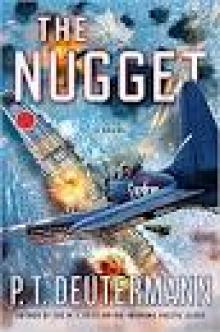 The Nugget
The Nugget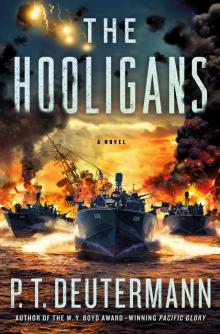 The Hooligans
The Hooligans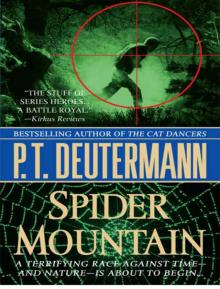 SPIDER MOUNTAIN
SPIDER MOUNTAIN![Cold Frame [retail] Read online](http://i1.bookreadfree.com/i/03/19/cold_frame_retail_preview.jpg) Cold Frame [retail]
Cold Frame [retail] Sweepers
Sweepers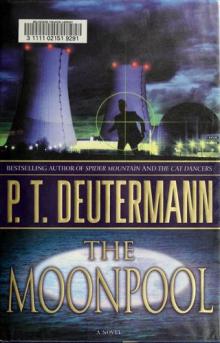 Cam - 03 - The Moonpool
Cam - 03 - The Moonpool Trial by Fire
Trial by Fire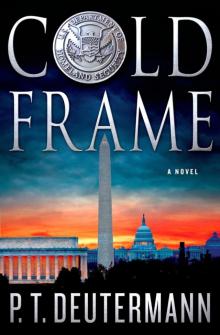 Cold Frame
Cold Frame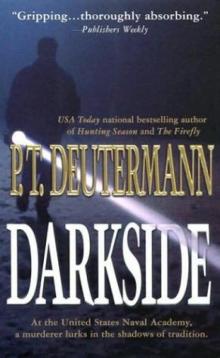 Darkside
Darkside Cam - 04 - Nightwalkers
Cam - 04 - Nightwalkers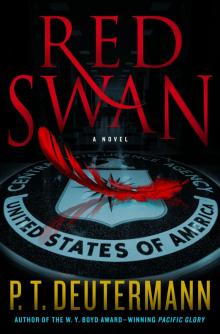 Red Swan
Red Swan The Commodore
The Commodore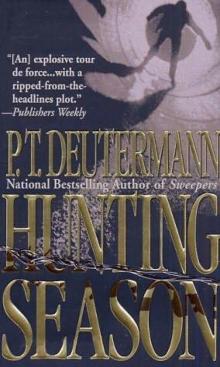 Hunting Season
Hunting Season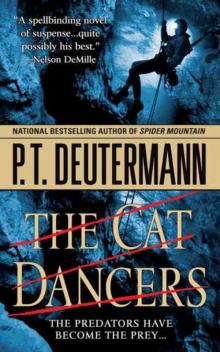 The Cat Dancers
The Cat Dancers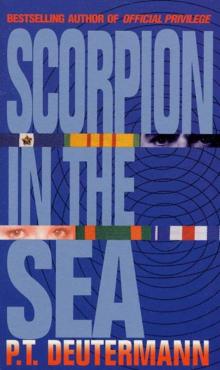 Scorpion in the Sea
Scorpion in the Sea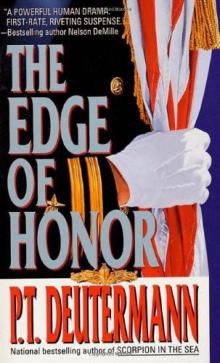 The Edge of Honor
The Edge of Honor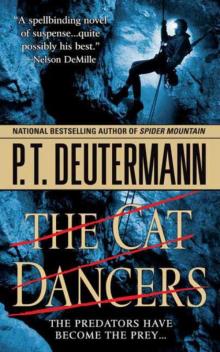 The Cat Dancers cr-1
The Cat Dancers cr-1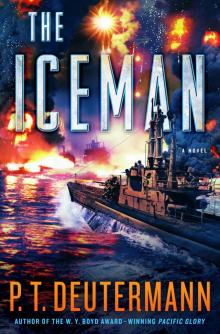 The Iceman
The Iceman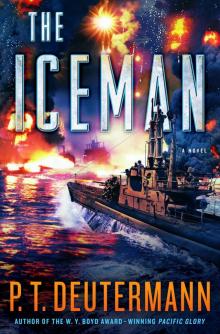 The Iceman_A Novel
The Iceman_A Novel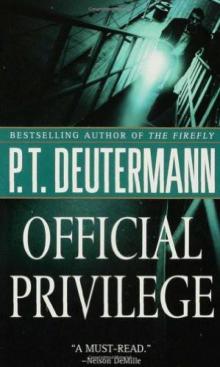 Official Privilege
Official Privilege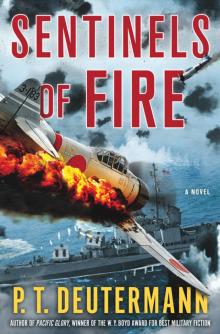 Sentinels of Fire
Sentinels of Fire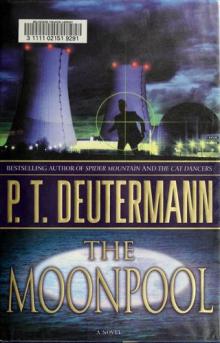 The Moonpool cr-3
The Moonpool cr-3 Nightwalkers cr-4
Nightwalkers cr-4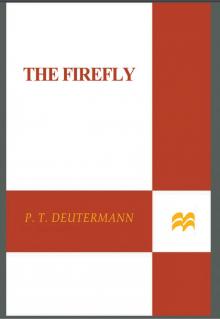 The Firefly
The Firefly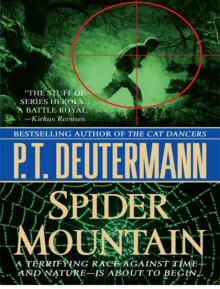 Spider mountain cr-2
Spider mountain cr-2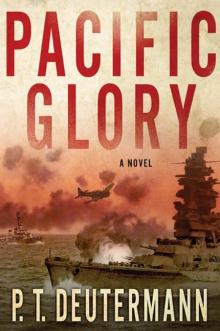 Pacific Glory
Pacific Glory The Last Man
The Last Man